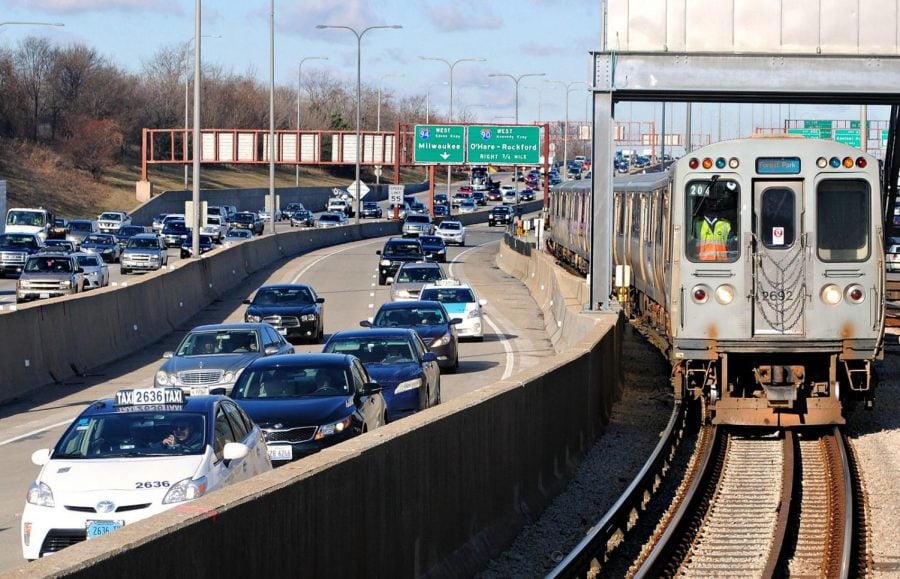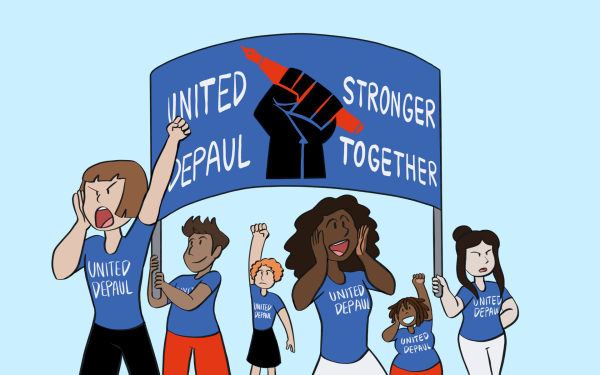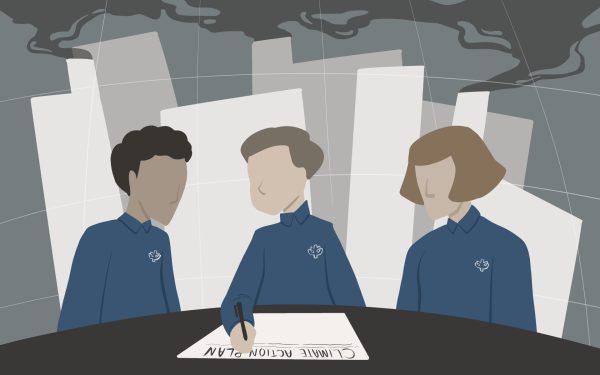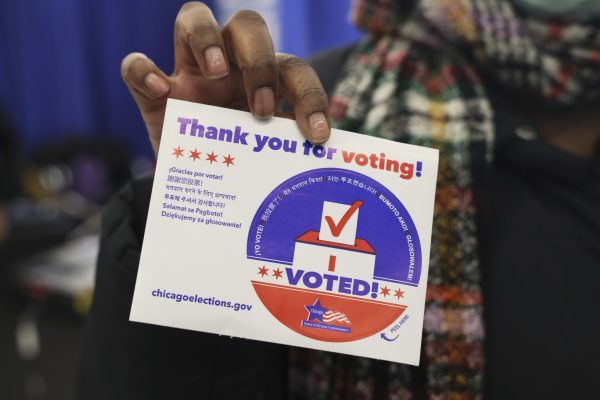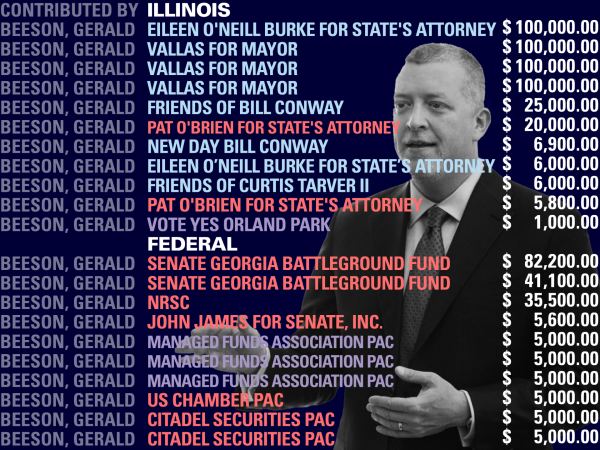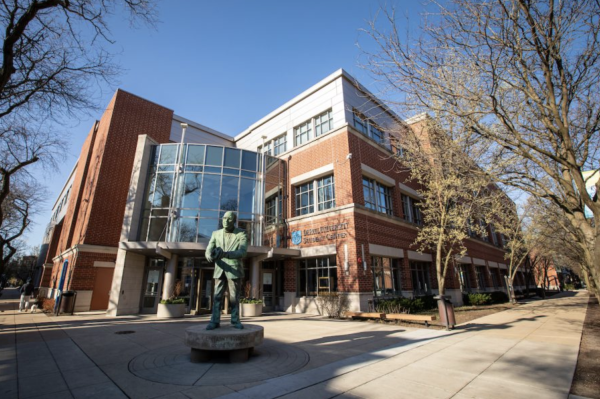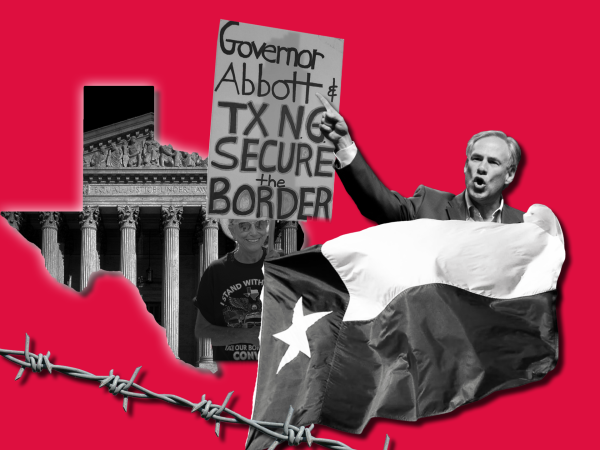Elon Musk plans to submit bid for Blue Line high-speed rail to O’Hare
Musk’s proposed high-speed rail would bring travelers to O’Hare in 15-20 minutes. (Photo courtesy of Wikimedia Commons)
Elon Musk wants to take a whack at solving one of Mayor Rahm Emanuel’s most pressing transportation concerns.
After meeting with Chicago’s then-deputy mayor Steve Koch in Los Angeles, Musk tweeted to his followers that his tunneling company – ironically named the Boring Company – would “compete to fund, build and operate a high-speed loop connecting O’Hare Airport to downtown.”
Musk’s high speed rail would be underground. The tunnel and railcars would be state of the art and able to travel using electromagnetic pulses that would propel railcars through tunnels much narrower than traditional subways. Though Musk has been interested in tunneling for quite some time, he has yet to actually put the ideas into practice.
This news has set the transportation world in Chicago ablaze, with residents dreaming of a shorter commute and city officials pining over different consequences and possibilities.
Anyone that lives in Chicago and flies out of O’Hare knows what a challenge the commute can be. The Blue Line can take 45 minutes, sometimes longer if there are delays, and once you have boarded, you are basically stuck until the train gets moving again.
Some are fortunate enough to have family or friends with a car, though that will cost you gas money, plus a very big IOU. And Uber? Forget about it. Those rides will cost commuters anywhere from $40 to $60 one way.
Emily Lindsey is an out of state student at DePaul that frequently travels to O’Hare.
“Not a lot of my friends on campus own a car, and I don’t like to burden them with asking for a ride,” she said. “I definitely don’t want to pay for an expensive Uber.”
Many DePaul students don’t have the money or resources to get a ride to the airport, and the free U-Pass certainly makes riding the Blue Line the practical option for most. For a student living on the North Side, the commute becomes even longer, requiring either a trip into the Loop to connect to the Blue Line, or multiple bus transfers. An improved travel solution would be a welcome addition for many DePaul students and Chicago travelers.
Joseph Schwieterman is a professor in the School for Public Service and is an expert in transportation. He is in favor of Chicago taking proposals for an express service option to O’Hare.
“We are all pretty skeptical, but I think it’s exciting,” he said. “I think it’s the right thing to do, in the sense that we will know by February whether or not there is a serious bidder out there.”
Schwieterman said there is no risk to the city by taking proposals because it is a good measuring stick to find out if there are any serious proposals.
Emanuel has promised that the project would take no taxpayer funds and would be completely funded by private enterprise.
“That really tied a hand behind his back,” Schwieterman said. Since Emanuel needs private funding it will likely take a major player like Elon Musk to submit a feasible proposal.
Schwieterman said there could be another major player in competition with Musk to secure the bid.
“The Chinese seem very interested in proving to the US that they can create high speed rail in America,” he said.
As of Jan. 2, the China Harboring Engineering Company is listed as one of the registered document holders expected to submit a proposal in February.
But what would a project of this magnitude mean for the average Chicagoan?
“We are already seeing pushback by everyday transit users,” he said.
According to Schwieterman, many Chicago residents see this as an unnecessary project that will divert the cities attention away from more pressing transportation issues.
Miljana Djurovic is a DePaul student that believes the Blue Line is already an adequate option. She said that spending time on an additional option is a waste of resources.
“Chicago is one of the only US cities with rapid travel from the city to its airport,” she said.
Djurovic is right: compared to US cities, Chicago consistently ranks in the top ten for its transit options. The problem, Schwieterman said, is how Chicago stacks up globally. “By international standards, we need a face lift.”
It is no secret that one of Emanuel’s top priorities is making sure Chicago secures its place as a global city, welcoming international commerce. If anyone can usher Chicago into a new era of global transportation, Schwieterman thinks Musk may be just the man for the job.


